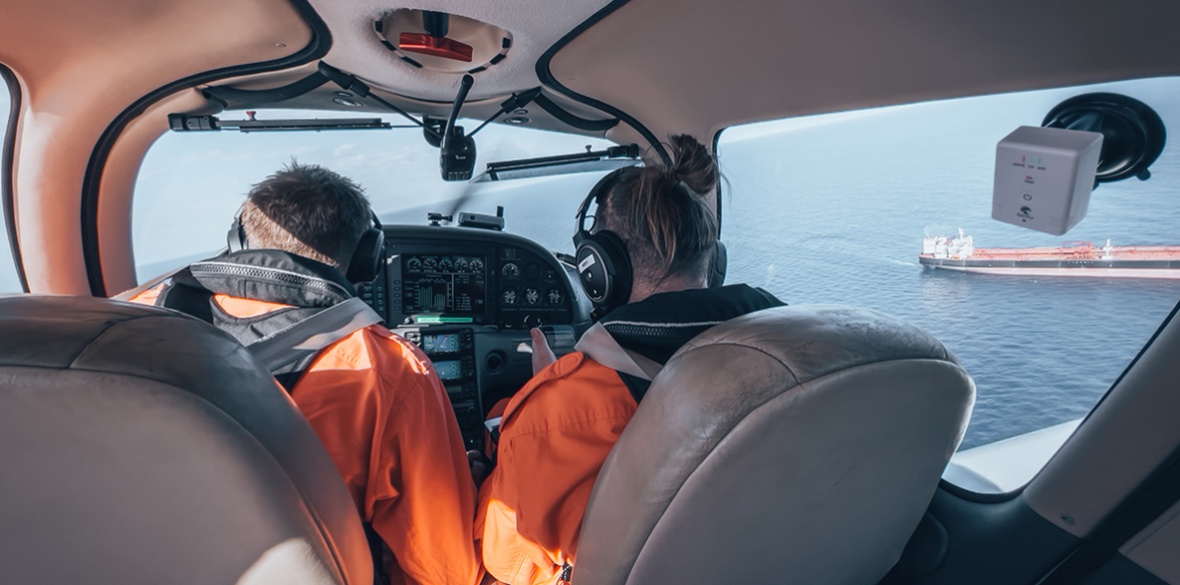This is the last article you can read this month
You can read more article this month
You can read more articles this month
Sorry your limit is up for this month
Reset on:
Please help support the Morning Star by subscribing here
LAST Saturday morning, a rubber boat sailing away from war-torn Libya carrying 109 people contacted the distress hotline operated by the activist network Alarm Phone.
“The weather is rapidly deteriorating,” Alarm Phone tweeted soon after the call.
“The people report high waves and an ongoing storm. They need immediate rescue. [The] authorities are informed. Don’t let them drown!”
But the authorities, the rescue co-ordination centres in Malta and Italy, didn’t do anything. The Libyan authorities did worse than nothing. They sent out the coastguard.
This is the second of a two-part story telling how a coalition of civilian refugee-rescue organisations saved the lives of 149 people inside Malta’s search-and-rescue (SAR) zone last weekend.
In part one, Eike, the tactical co-ordinator on board the NGO reconnaissance plane Seabird, told us how he witnessed the Libyan coastguard disrupt the rescue of 40 people last Friday by the Spanish NGO ship Open Arms.
Here, Eike and the SAR co-ordinator on board the Open Arms, Albert Mayordomo, tell us what happened on Saturday.
“We took off from Lampedusa and headed south,” Eike says, this time in his NGO Sea Watch’s other plane, Moonbird.
“We spotted a rubber boat with approximately 100 people on board around the Maltese SAR boundary.”
The central Mediterranean is split up into four SAR zones between Libya, Malta, Tunisia and Italy, with each one tasked with co-ordinating rescues in their respective zones.
That’s the theory anyway. For most of the past year Malta has used the Covid-19 pandemic as an excuse for not co-ordinating refugee rescues in its SAR zone.
Eike and the Moonbird crew spotted an oil tanker called Alpine Aqualina about three or four nautical miles (nm) away from the distress case.
“We established contact with the Alpine Aqualina, which was at that moment actively heading away from the boat,” Eike says.
“I asked the captain if he was aware of the distress case and told him of his duty to render assistance and to rescue the boat. But he told me that he was unable to do that because of the coronavirus.
“I told him again about his duties, that the immediate danger of life is to be prioritised above the potential disease a person in need of rescue could have.
“He tried to deny that it was a distress case. He was saying that the boat was still moving and that there were no people in the water.
“I told him that it was an overcrowded rubber boat, that people were sitting on the outer tubes, that it was not seaworthy at all, that it could sink at any time and that bad weather was coming.
“Eventually he changed course and slowly followed the boat for around one-and-a-half to two hours. But he maintained a distance of about 5nm from it.”
Both the Alpine Aqualina and the Vos Triton, the merchant ship mentioned in part one that ignored 40 refugees in distress last Friday, are humongous ships. They could have easily hosted the people escaping the horrors of Libya’s civil war and migrant detention centres and taken them to a safe place. But they didn’t.
It is the legal duty of every ship on the seas to attempt to rescue people in distress at sea. The law is set out in the United Nations Convention of the Law of the Sea, the International Convention on Maritime Search & Rescue and elsewhere.
Eventually, Eike says, the Moonbird had to go back to base. Before leaving, the Alpine Aqualina’s captain told him that they would continue to monitor the refugees.
“The last position I have for the boat was at 34°23'N, 012°17'E. That is inside Malta’s SAR zone, to my knowledge.
“I told the captain that the so-called Libyan coastguard (scLCG) are not the competent authority.”
A plane chartered by Frontex, the European Border & Coastguard Agency — (see part one for more details), was also on the scene on Saturday.
“Our pilot tried to contact the Frontex aircraft on the aviation frequency that all aircraft have to monitor at all times,” Eike says.
“But they wouldn’t answer. So our pilot told them that the competent authority in these waters is Malta, and that the people need to be rescued to a safe port.
“Later, when we got back to Lampedusa, we learned that the Open Arms made it to the boat and carried out the rescue. However, the scLCG was also at the position.”
Open Arms’ SAR co-ordinator Albert Mayordomo told the Star what happened next in a voice recording sent from the ship on Monday.
“Ten minutes after we made contact with the rubber boat, a scLCG patrol boat appeared on scene at full speed,” Mayordomo says.
“The scLCG patrol boat didn’t respect a safe distance from our rescue boats and the rubber boat at first. We told the Libyan patrol boat to keep clear from the scene at all times.
“We then told them that the whole operation was being recorded. Then, and only then, did they agree to keep clear.
“The scLCG patrol boat communicated to us that they were there on Malta’s behalf. We replied that we did not receive any official communication from Malta and therefore we will proceed with our operation.
“Minutes later, we receive an email from Malta granting our intervention in [its] SAR zone.
“The scLCG patrol boat offered their assistance, but we declined, obviously. The scLCG patrol boat remained on scene until the operation was concluded.”
Fortunately, the Open Arms didn’t have to wait long for another port after Malta refused to allow the 149 people rescued within its own SAR zone to come ashore.
On Tuesday morning the Open Arms announced that it would soon begin the disembarkation and Covid-19 testing processes with the Italian authorities at Porto Empedocle in Sicily.
Last September, the Italian authorities banned the Moonbird and Seabird from operating for months.
“The Italian government and the European Union want to make sure that no-one knows the truth about what happens in the central Mediterranean,” said Sea Watch legal adviser Giorgia Linardi at the time.
“We spent too many hours at sea reporting the presence of people in need, reporting the omissions of rescue, and the unacceptable delays in providing support to these people as well as the illegal interceptions and ‘pushbacks’ of these people onto Libya,” she said.
“We are not able to report to you, to the whole world, what is happening in the central Mediterranean so that governments can continue committing their crimes.”
Who knows what would have happened last weekend had the Seabird, Moonbird and the Open Arms not been out there.

 Ben Cowles
Ben Cowles









